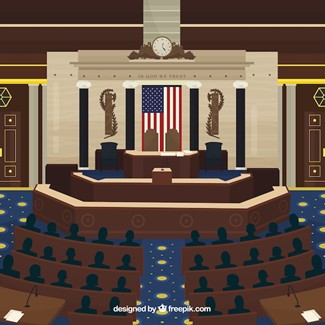Your Office Might Reopen Soon … Or Not?
June 5, 2020Pandemic Prompts Proposed Amendments to New Jersey Earned Sick Leave Law
June 15, 2020By: Chantal N. Guerriero, Esq. and Ty Hyderally, Esq.
Last week, new legislation modifying the current Paycheck Protection Program (“PPP”) was unanimously passed by the U.S. House. On Wednesday, June 3, 2020, the new legislation was also passed by the U.S. Senate and thus given the green light for implementation pending President Trump’s sign off. The new legislation imposes modifications which would have positive implications for New Jersey and New York small businesses, as they appear to account for the higher than average rent that many small business owners are obligated to paid in these states.
The current PPP provides low-interest forgivable loans for small businesses who retain their staff during the COVID-19 pandemic, but requires that such small businesses spend 75 percent of their loans on payroll. Under the proposed modifications in the Paycheck Protection Flexibility Act (“PPFA”), employers would be required to spend just 60 percent on payroll, leaving them a larger amount left over for their rent obligations and other business expenses.
Further, the current PPP provides for only eight weeks for employers to spend their loans and in turn qualify for loan forgiveness. Under the proposed modifications in the PPFA, employers would have 24 weeks, or until December 31, 2020, to spend their loans. The PPFA also allows businesses to remain qualified for loan forgiveness even if they do not fully restore their workforce because they either were unable to find qualified employees to fill their preexisting positions, or they were unable to restore pre-pandemic business operations.
As with the PPP, the amendments fall under the umbrella of the Coronavirus Aid, Relief, and Economic Security (CARES) Act signed into law in March of 2020 and aimed at relieving some of the economic impacts of the COVID-19 pandemic. It should be noted that under the PPFA, employees who turn down good-faith offers to return to work, meaning their employer offered to rehire them at the same rate of pay and under the same position, may become ineligible to receive unemployment benefits. A rejection for employment runs counter to the policies under the CARES Act and the PPFA, whose modifications aim aid in the viability and rehabilitation of small businesses and in turn ensure that employees remain employed.
This blog is for informational purposes only. It does not constitute legal advice, and may not reasonably be relied upon as such. If you face a legal issue, you should consult a qualified attorney for independent legal advice with regard to your particular set of facts. This blog may constitute attorney advertising. This blog is not intended to communicate with anyone in a state or other jurisdiction where such a blog may fail to comply with all laws and ethical rules of that state of jurisdiction.

